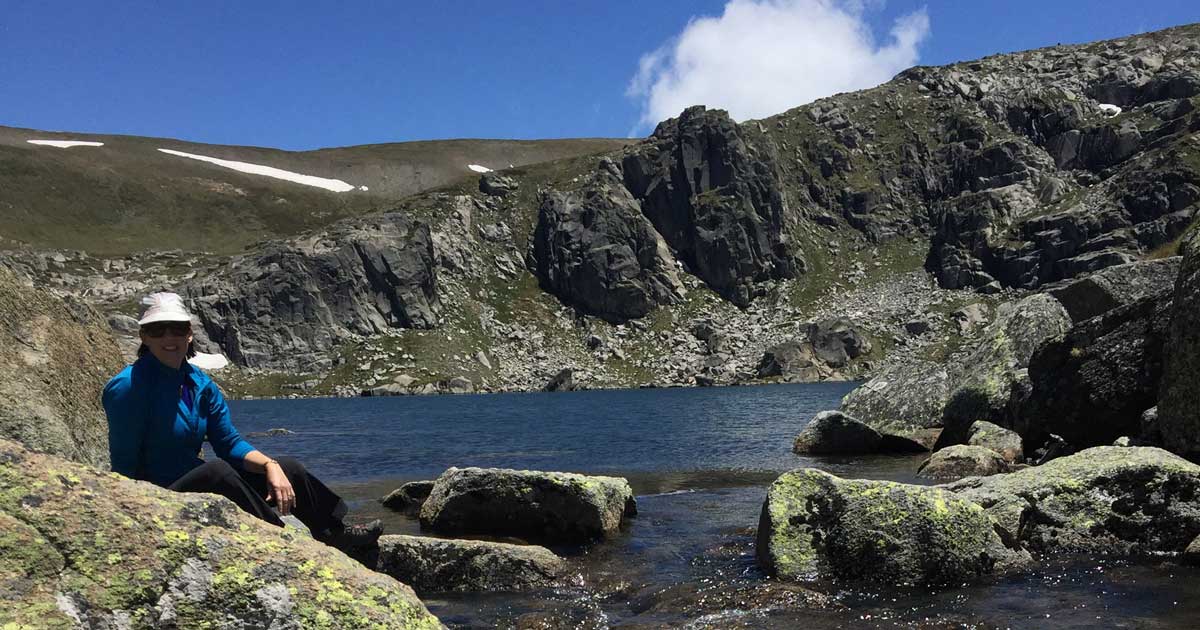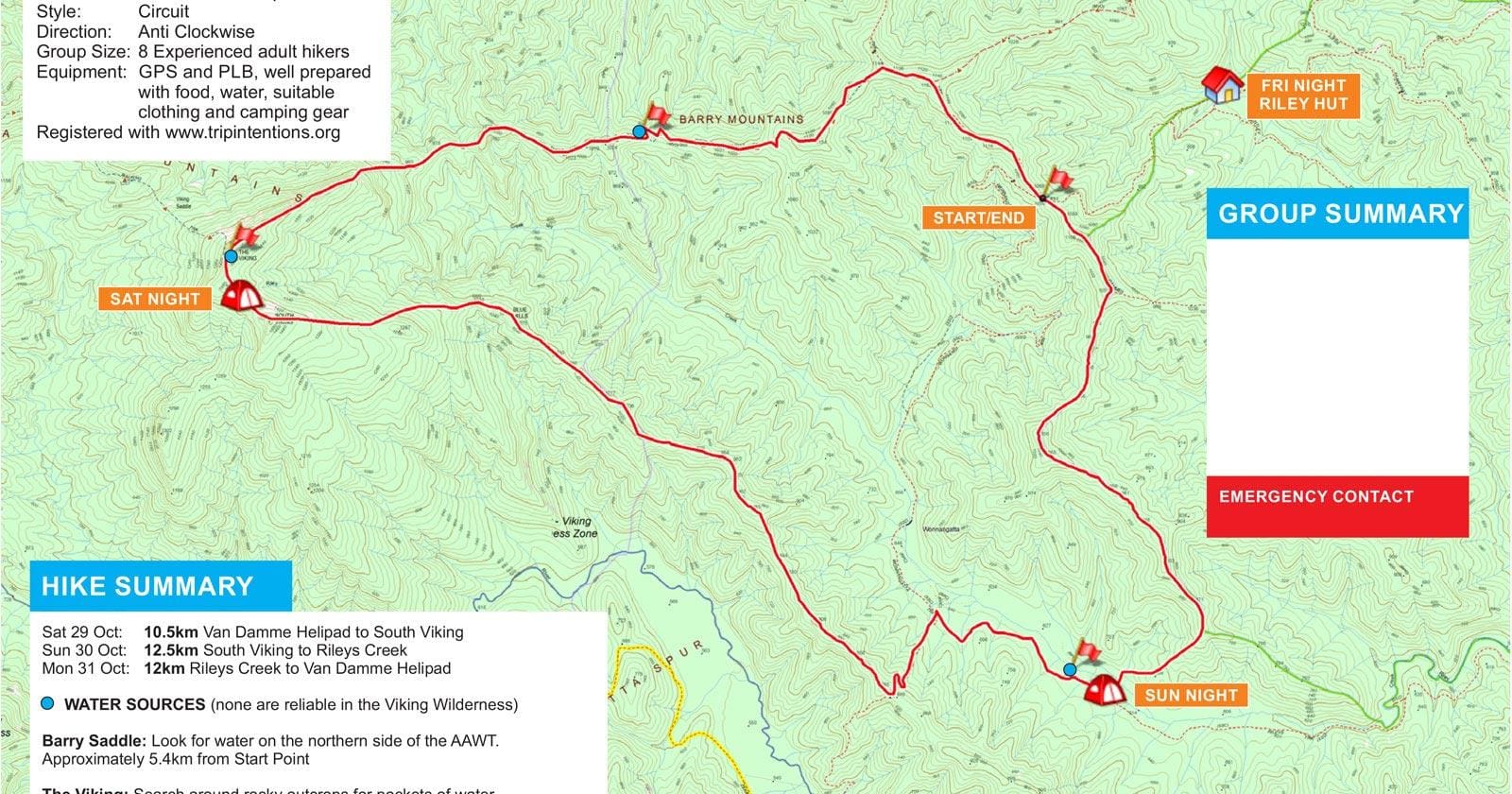Managing the wilderness within
Managing stress and recognising mental fatigue on outdoor adventures
While we often focus on the physical challenges of outdoor adventures, the mental and emotional aspects can be just as crucial. Just like your body needs rest and recovery, your mind needs the same during and after a trek through the wilderness.
Why stress matters
Imagine scrambling up a rocky incline, sweat dripping down your forehead, lungs burning. You finally reach the peak, expecting a breathtaking panorama, but instead, you’re met with a maze of overgrown trails, each one potentially leading you further astray. In that moment, a surge of cortisol floods your system – the stress hormone. Your heart hammers against your ribs, your breath catches in your throat, and suddenly, clear thinking takes flight.
This isn’t just a scene from a thriller; it’s a common scenario on outdoor adventures. While physical challenges are part of the thrill, stress can silently become the antagonist, sabotaging your experience in myriad ways like:
1. Decrease cognitive function:
Making clear decisions becomes challenging, increasing the risk of accidents or poor choices. Stress acts like a fog machine in your brain, obscuring your cognitive abilities. Simple tasks like deciphering a trail map or remembering directions become mental marathons. This can lead to poor decision-making, increasing the risk of taking the wrong turn, getting lost, or even encountering danger.
2. Impair problem-solving:
Finding solutions to unexpected situations, like a sudden change in weather, becomes more difficult. Unexpected situations are inevitable in the outdoors, from sudden weather changes to equipment malfunctions. But under stress, your brain’s problem-solving circuits go haywire. Finding creative solutions to these challenges becomes an uphill battle, potentially putting you in a vulnerable position.
3. Reduce resilience:
Stress can sap your mental fortitude, making you more susceptible to giving up or succumbing to negative self-talk. That challenging climb that once seemed exhilarating now feels insurmountable. The awe-inspiring beauty of the wilderness is drowned out by the inner critic, whispering doubts and deflating your motivation.
4. Affect mood and enjoyment:
Stress can transform the joy of exploration into a cauldron of frustration and anxiety. The camaraderie you shared with your companions evaporates, replaced by irritability and impatience. The once-thrilling adventure devolves into a tense slog, leaving you yearning for the comfort of home.
Remember, stress is a natural response, but letting it take control of your outdoor experience is far from ideal. By recognising its impact and employing effective coping mechanisms, you can reclaim control, navigate the mental terrain with clarity, and ensure your adventures remain enriching journeys of both body and mind.

Recognising the signs of mental fatigue
Just like your legs burning after a steep climb, your mind can also grow weary, subtly impacting your experience in ways you might not realise. Think of it like a creeping fog rolling in, slowly obscuring your mental clarity and resilience. Recognising the subtle signs of this fatigue is crucial for navigating the wilderness within and ensuring your adventure remains enriching.
Be mindful of these subtle signs:
1. Increased irritability and impatience.
Ever find yourself snapping at your mates over minor inconveniences? Or perhaps a misplaced piece of gear triggers a disproportionate wave of frustration. Increased irritability and impatience are often the first whispers of mental fatigue.
2. Difficulty concentrating and making decisions.
Do familiar landmarks suddenly seem unfamiliar? Does making simple decisions, like agrreing on the right direction at a trail junction or choosing a campsite, feel like deciphering ancient hieroglyphics? Difficulty concentrating and making decisions is another telltale sign, potentially leading to poor choices and increased risk.
3. Negative thoughts and self-doubt.
The once-thrilling climb now feels like an insurmountable wall. Doubts creep in, whispers of “you’re not strong enough” or “this was a bad idea” echoing in your mind. Negative thoughts and self-doubt can spiral quickly, draining your motivation and enjoyment.
4. Loss of motivation and enthusiasm.
That spark of excitement that fueled your adventure seems extinguished. The stunning scenery fails to ignite wonder, replaced by a sense of apathy. Loss of motivation and enthusiasm is a clear indicator that your mental tank is running low.
5. Feeling overwhelmed by the environment or challenges.
The wilderness, once a playground of possibilities, now feels overwhelming. Every boulder seems like a mountain, every bump in the trail seems it’s out to get you, every challenge insurmountable. Feeling overwhelmed by the environment or challenges is a sign that your mental resources are stretched thin.
6. Headaches and body tension.
Headaches, body tension, and even digestive issues can sometimes be the physical manifestations of mental fatigue. Don’t ignore these bodily cries for help; they’re often interconnected with what’s happening within your mind.
Remember, these signs are not weaknesses, but rather gentle nudges from your mind reminding you to slow down and adjust. Listen to these whispers, and don’t hesitate to adapt your itinerary or simply take a break. Reconnect with the beauty around you, practice mindfulness exercises, or confide in your companions. By acknowledging and addressing mental fatigue, you can reclaim your inner compass and continue your adventure with renewed clarity and resilience.

Managing stress and mental fatigue
Just like you train your body for adventure, you can equip your mind with tools to navigate the inner wilderness and ensure your journey remains enriching. Don’t underestimate the power of simple practices to keep your mind in peak performance during and after your adventures:
- Plan for rest breaks: Schedule regular stops to relax, de-stress, and appreciate the scenery.
- Practice mindfulness: Meditation or deep breathing exercises can help you stay present and manage anxiety.
- Connect with nature: Take time to observe the beauty around you and appreciate the awe-inspiring power of the outdoors.
- Stay hydrated and nourished: Proper fueling keeps your body and mind functioning optimally.
- Communicate openly: Share your feelings and concerns with your companions, and seek support if needed.
- Embrace the challenge: Reframe difficult situations as opportunities for growth and resilience.
- Celebrate your achievements: Acknowledge your progress, no matter how small, to maintain motivation.
- Listen to your body and mind: If you need to turn back, do so without guilt. Your safety and well-being are paramount.
By incorporating these tips into your outdoor routine, you can ensure that your adventures are not just physically rewarding but mentally enriching as well. Remember, exploring the wilderness should be a journey of self-discovery and growth, both inside and out.
Remember, taking care of your mental well-being is just as important as preparing physically for your next outdoor adventure. By acknowledging the impact of stress and practicing mindfulness, you can create a safer, more enjoyable, and truly transformative experience in the wilderness.
I hope this info helps you manage the wilderness within and have a fantastic time on your next outdoor adventure.






I know I feel this when I’m hungry. I start looking at hills as though they were mountains and can feel myself thinking of better things to be doing. Have to keep my energy up by snacking regularly.